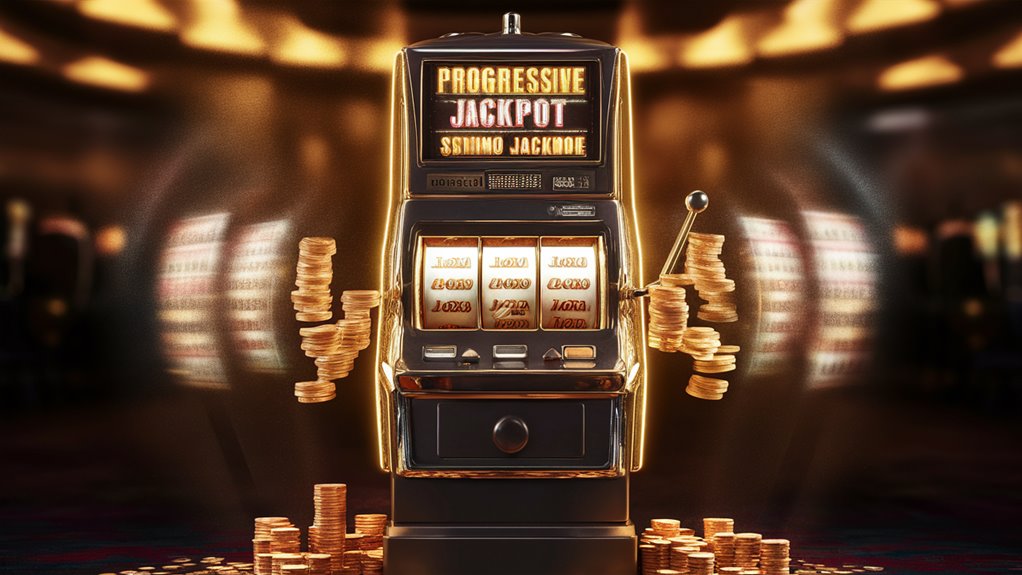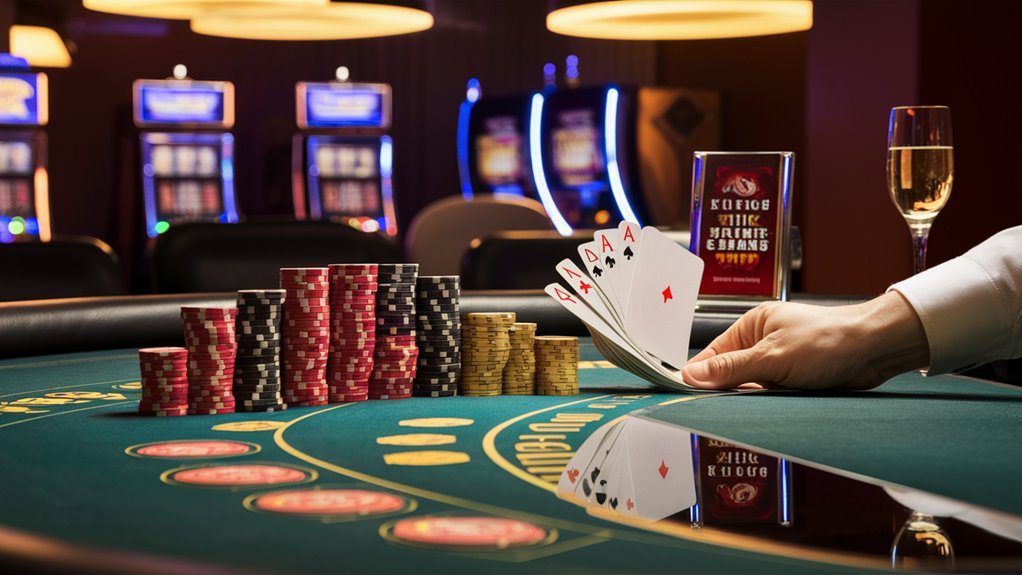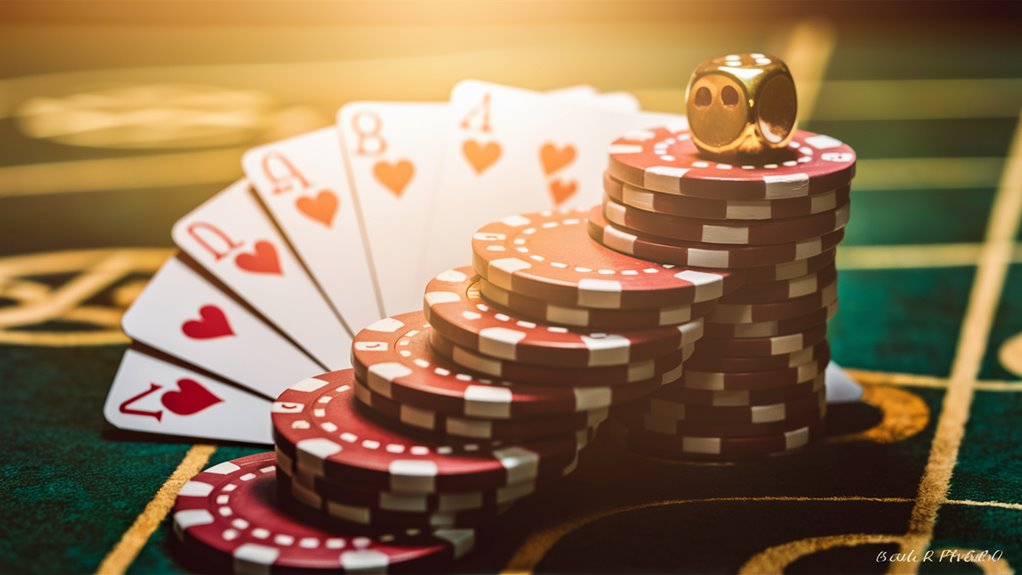The dark side of gambling and how to avoid it
Understanding the addiction cycle
Based on dopamine-triggered compulsive cycles, gambling addiction holds an intense grip over the psychology of individuals. For compulsive gamblers, this problem behavior will call itself a healthy “bet” even when it clearly is not one. The mind normally finds solace in the situation because its previous ‘winning’ (that’s the mental malady known as fallacy) has now disappeared. Furthermore, the gambler is likely to see himself next time he tries his luck as winning more money, since a previous lucky streak allows two large amounts of cash. The brain’s reward system becomes hijacked, leading to persistent thoughts about gambling and severe mood swings.
Impact on mental health and relationships
The psychological hurt gambling disease brings is far greater than economic losses. People who suffer from this sickness show withdrawal symptoms that perfectly match those of a substance abuse patient, including: Severe anxiety and depression, Family relationships in trouble, Professional damage to one’s career, A sense of disorder on all levels, Permanent financial hardship.
Prevention Strategies And Safeguards
Financial Protection Measures
- Strong control of the budget
- Banking restrictions on gambling transactions
- Automatic savings transfers
- Regularly check credit reports
Self-Exclusion and Support Systems
- List with online gambling blockers
- Support communities for the gamblers
- Accountability partnerships individually recognized each year
- Establishment keeps distance from trigger environments
Professional Treatment Options
Therapeutic Approaches
- Cognitive Behavioral Therapy (CBT)
- Group counseling sessions
- Guidance on financial management
- Techniques to reduce stress
Recovery Resources
- Meetings with Gamblers Anonymous
- Professional addiction counselors licensed for the particular state
- Crisis hotline help
- Family therapy programs
Breaking free from gambling addiction demands complex work involving professional intervention, mutual aid systems, and above all, the willingness of the individual to get better.
Warning Signs that May Signal Problem Gambling
Warning Indicators of Problem Gambling
Behavioral List Of Primary Warning Signs
When a gambling problem reaches a crisis point, there are often signals that really make the severity of the situation clear. For example, squatting flat on the ground for hours without changing position in order to recuperate what has been lost is one of these indicators. A change in character is generally followed by signs of this type. When a person’s behavior comes to this point, it means things are pretty bad indeed. If he owes money for gambling purposes or uses funds set aside in account A to cover account B along with all living expenses, then the time when he has hit bottom is already upon him—and not only financially, either.
Psychological and Psychological Signs
The probable mood changes and emotional instability The Impact of AI and Machine Learning on Gambling of problem gambling behavior. When people are unable to gamble or trying to cut back on their activities, they may exhibit enhanced irritation.
A worsening addictive tendency in someone who refuses to give up gambling. When people are not actually gambling but continually thinking or even talking about it, they have entered what amounts to an exaggerated state of needing their next dose. The deeper into addiction they go, the more they crave those exciting gambling experiences.
Financial & Social Impact Indicators
Behaviors such as gambling with home bill money and selling personal items to fund a gambling habit reflect serious repercussions for aspiring problem gamblers.
Social withdrawal and shirking typically represent two important warning signs, if only because when confronted with this issue people will withdraw into denials or use gambling as a way out of their own emotional problems.
Wagering beyond one’s means, plus amassing debts from gambling, present unimpeachable markers of morbid betting behavior.
Understanding the Addiction Cycle
The Neurobiology of Gambling Addiction
The physiological responses to gambling behavior involve systems such as the nerve endings and neurotransmitters. The onset of gambling activity prompts chemical changes in the brain. Transparency circuits begin to operate all over again as a release of dopamine gives way to further pursuit. Neural responses in which N – 90 plus CR – 90 Share
These are the physical bases for the chase-crash-repeat cycle.
Key Stages in the Gambling Addiction Cycle
Phase 1: Anticipation
This stage is characterized by irresistible cravings and continual thoughts about gambling. The brain begins to anticipate reward, heightening an overwhelming desire to engage in gambling activities.
Stage 2: Action
During this phase, the individual engages in compulsive betting despite negative consequences. The dopamine reward system activates fully, reinforcing the addictive behavior pattern.
Stage 3: Chasing Losses
This is the critical stage: escalating bets in an attempt to recover lost funds. The habit of taking risks intensifies, leading to a vicious circle of increasingly larger losses and more and more desperate attempts at recovery.
Stage 4: Withdrawal
The cycle ends with a period of severe withdrawal symptoms—a combination that may include:
- Anxiety
- Irritability
- Depression
- Intense craving

Breaking the Cycle
Only willpower isn’t enough to break the “gambling addiction” cycle; the brain’s neural pathways have been altered dramatically so that the body depends on the supply of neurotransmitters brought about by gambling. At this stage, professional intervention becomes essential for breaking this cycle effectively and developing long-term recovery routines. They must also address the behavioral and biochemical aspects of the condition. The neurological impact of gambling addiction necessitates customized treatment approaches. Understanding this comprehensive context helps justify the condition’s severity and the need to have professional treatment regimes.
The Health Risks and Emotional Damage Of Problem Gambling
Physical Health Consequences Of Problem Gambling
Problem gambling has a harmful effect on the body’s physical health through several interconnected mechanisms. As these hormones put the body under heightened stress, blood pressure rises, heart problems occur, and the immune system becomes compromised. Chronic gambling often results in severe insomnia, gastrointestinal problems, and headaches resulting from constant worry and anxiety about losses or debts.
Psychological Impact of Problem Gambling
Problem gambling places a severe burden on the mental health of the problem gambler. Studies have found that people with gambling disorders are six times as likely to have suicidal thoughts and ideas as the general population. Anxiety disorders go hand in hand with gambling addiction, and as with drinking, everything gets worse in the other disorder. Habitually dealing secretly and cunningly in gambling soon leads to paranoia as self-secluding precedes destitution.
Cognitive Deficits
Gambling is often viewed as a neurological and cognitive disease. On the other hand, people with problems can still think rationally on the whole if they do not gamble for an extended period of time, to a few years.
The brain’s reward system alters, making it difficult or impossible to feel happy during normal activities.
Memory loss, difficulty concentrating, and poor judgment are the main symptoms of cognitive dysfunction. For gamblers, recovery may involve seeking professional help in order to restore healthy neural patterns and thinking streams.
Countermeasures
Basic Prevention Methods
- Establishing firm financial boundaries is key to a responsible gambling approach.
- Decide how much money you can afford to lose or win and set a time limit before playing any games of chance.
- Enforcing self-exclusion protocols from both physical sites and digital platforms stands as a critical barrier to problem behavior.
Technical Measures to Prevent
- Install an effective gambling-blocking software across all devices to shut off access to betting anklets.
- Develop financial monitoring systems and provide friends wearing them with keys that allow for open access to accounts, complete transparency.
Taken together, these technical defenses erect vital barriers standing in the way of impulsive gambling decisions.
Recovery Systems And Recovery Techniques
Accountability relationships are the key to both prevention and recovery.
- Keep open lines of communication with family and friends about gambling issues.
- A support group such as Gamblers Anonymous, which allows access to valued community resources and proven plans for managing urges.
Professional Intervention & Treatment
- Cognitive behavior therapy is one of the most effective ways to treat gambling disorders.
- Professional counseling services are The Psychology of Risk-Taking in Gambling uniquely knowledgeable about treatment for addictions and how to prevent setbacks.
- Continual therapy sessions will help you meet challenges bravely while forming a sustainable pattern for living without abusing drugs.
Alternate Actions and Changes in Lifestyle
- Seek out enriching hobbies and pastimes that drain awareness away from the compulsion to gamble.
- Engage in positive activities that are conductive to both mental and physical well-being.
For professional recovery planning and chemical dependency, having a balanced lifestyle at least diminishes the likelihood of risky gambling and offers long-term help against a return to risk-taking behavior.
Helping Options And Recovery Tools in All Fields
Effective Evidence-Based Treatment Options For Gambling Addiction
Effective stress-ion teams for Problem Loading Personality Disorder.
Professional-Grade Recovery Approaches
Helping gamblers get off the path of gambling destruction serves as the linchpin in effective recovery.
- Employing experienced gambling specialists, our programs follow thorough evaluations to design personalized strategies for treatment.
- Behavior modification strategies are central in CBT, which targets problematic thoughts and acts related to gambling conditions.
Treatment Methods and Coping Strategies
There are various evidence-based treatment options:
- One-on-one counseling for intervention tailored to the individual
- Group therapy to share what works
- Medications for accompanying psychological disorders
- Debt-management advice because of gambling
Community Support and Resources
Gamblers Anonymous serves as a valuable resource for mutual encouragement and contact through their 12-Step recovery plan. These grassroots meetings also provide valuable links with others traveling much the same route. Assistance is available immediately, 24/7 at the National Problem Gambling Helpline (1-800-522-4700).
Comprehensive Recovery Program
In providing a systematic approach to treatment, many methods are combined in most treatment schemes:
- Behavioral intervention strategies
- Participation in a community service group
- Changes in lifestyle
- Family therapy sessions also help in this unified mode
The family’s support systems play a crucial role in sustaining recovery: not only do they participate actively in its achievement through special treatment sessions and courses, but their spouses also have strategic interactions with other family members to support each other.
Stories of Hope and Success
Pathways to Recovery
The real-life recoveries provide insights into the variety of roads now taken for sustainable recovery from gambling addiction.
With each successful story come three essential elements: acceptance, a commitment to change, and the development of support systems. Together these form the foundation upon which sustainable change can proceed.
Essential Recovery Strategies
- Financial Management Policies
- A bank account freezing policy
- Monitoring checking accounts by members of the family that one can trust for advice
- A tight budget process for the coming month
- Financial Accountability partnerships
Trouble Stoppage and Prevention
The cornerstone of a good recovery program is being able to identify one’s own personal risk factors:
- Resiliency factors for stress
- Exit strategies from stressful social environments
- Places of gambling in one’s environment
- The habit of gambling from go-zero
Treatment Goals Rooted in Knowledge
Cognitive Behavioral Therapy (CBT) has been a leading psychological intervention since it delivers good results that can be documented.
The key techniques include:
- Recognizing, and ending both negative thoughts and reactive behavior by replacing them with new patterns of behavior anchored in mindfulness.
- Integrating mindfulness into the treatment process so that it becomes a habit.
- Allowing oneself to develop a structured routine.
- Creating new habits and constructing environments conducive to recovery so boredom does not trip.
Community engagement and peer support both serve as essential recovery support pillars:
- Regular attendance at a self-help group
- Mentorship; Networking with peers; Participating in grassroots outreach initiatives
- Family therapy is integrated into the treatment program
- Recovery Fellowships are connected with throughout all stages of the therapeutic process
Daily Recovery Maintenance
- Regular exercise program
- Mindfulness practices taught in traditional ways
- Development of newfound productive hobbies that create useful tangible items as a formative experience while you are a recovery addict
- Use of stress management techniques during 카지노사이트 추천 treatment should be an integral part of all emotional therapy units offered by psychiatrists and psychologists
Long-Term Recovery Success Indicators
- Consistent financial stability
- Success in recovering a healthy family life
- Improved emotional regulation
- Behavioral change sustained over time
- Participation in community life for active students who live there
This comprehensive approach to enduring success in recovery, based upon practical financial management, psychosocial interventions, and broad social supports, allows the person to have the foundation needed long-term for success in recovery.


